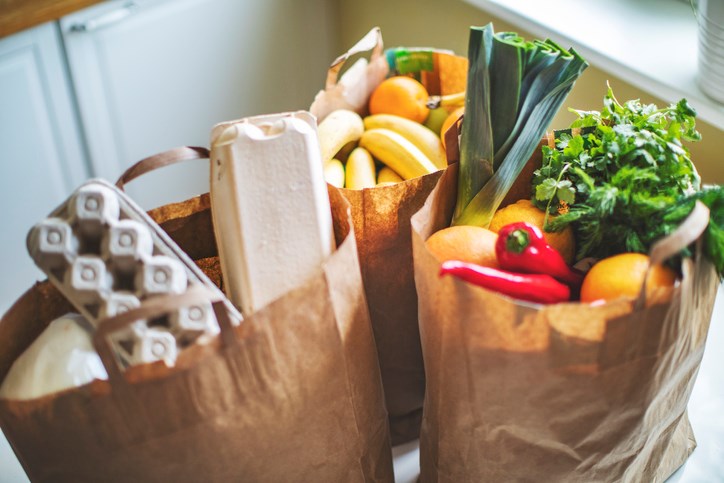REGINA — With a record number of Canadians turning to food banks, a group of leading food insecurity researchers in Saskatchewan has identified weaknesses in Canada’s food system. They are now calling for more support for local food production to address food insecurity in this country.
“The current principles guiding our food system are neoliberal in nature – we’re feeding the world, but we’re harming our land and despite all of the food in the system, Canadians still don’t have food security; they still hunger,” said Ebube Ogie, a master’s researcher in the Sociology and Social Studies department at the University of Regina.
“Our findings show that our local food systems can do much good for us as a nation. We want to see local food production blossom here by relying on food sovereignty principles and living heritage.”
Ogie, along with the project’s principal investigator Dr. Glenn Sutter, associate professor Dr. Amber Fletcher, and their research partners from Heritage Saskatchewan will be sharing findings from a Saskatchewan-wide online survey and a narrowed-down in-depth study on food insecurity in rural Saskatchewan communities at the upcoming Congress of the Humanities and Social Sciences (Congress 2023), Canada’s largest academic gathering and one of the most comprehensive in the world, taking place May 27 to June 2 at York University in Toronto.
Billed as a leading conference on the critical conversations of our time, Congress 2023 serves as a platform for unveiling thousands of research papers and presentations from social sciences and humanities experts worldwide. With more than 8,000 scholars, graduate students and practitioners expected to participate, the event focuses on reckoning with the past and reimagining the future, inspiring ideas, dialogue and action that create a more diverse, sustainable, democratic and just society.
At Congress, Ogie will present findings from ongoing interviews with Saskatchewanians living in Muskeg Lake Cree Nation and Val Marie, designed to obtain Indigenous and non-Indigenous perspectives on their food challenges. The qualitative study builds on an earlier province-wide survey – conducted from February to June 2022 – that showed that people in the province are concerned about food accessibility, affordability, and loss of local knowledge about how food is produced and consumed. Residents of White City and Gravelbourg are also being interviewed.
“We’re continuing to hear major concerns about how the prices of food have been rapidly increasing, about the difficulty accessing fresh food from local grocery stores and concerns about the food supply chain,” said Ogie, noting that Val Marie residents reported difficulty accessing staples like milk and not having a café and that Muskeg Lake doesn’t have a grocery store. Hence, residents must travel to nearby communities to buy groceries, increasing the affordability challenge.
“People are telling us that there is an over-reliance on processed and foreign foods, and this affects local knowledge about how food can be produced, preserved, prepared and consumed,” she added.
Some participants from Val Marie expressed that the removal of railway lines has affected grain production, and the people living in Muskeg Lake expressed growing concern over the effect of pesticides, chemicals and sprays used by industrial food producers on their land, which is causing them to lose local sources of wild meat and berries.
“We have this dominant industrial way of producing food in Canada and this project is shedding light on the value that local cultural practices, local knowledge and living heritage can have when it comes to presenting an alternative,” said Fletcher, who serves as academic director of the university’s Community Engagement and Research Centre.
“It’s time to challenge the system and focus more on historically engrained practices that have been passed down from generation to generation, so people learn how to grow food, process food and consume food in ways that are more responsive to what is and can be grown here.”
Based on their findings, the researchers are calling for greater emphasis on principles of food sovereignty, which promote active participation from local producers, self-determination and respect for the land, and acknowledge local food philosophies and traditions. For example, study participants in both Muskeg Lake and Val Marie were able to manage food shortages during the pandemic because they already had local food practices in place.
Muskeg Lake residents are becoming more self-sufficient through their local food forest, a self-sustaining, nature-inspired agricultural system that provides fruits, vegetables, other edibles, medicines, and cultural resources. Val Marie residents could access fresh foods from a nearby Hutterite Colony, a self-sustaining colony producing its food, and relied on their gardens. Both models could be replicated elsewhere – in urban centres, for example – to help deal with food shortages, said Ogie.
“It’s time to stop looking at food as something to maximize profits and start seeing it as something to consume,” said Ogie, who is from Nigeria, where food insecurity is heightened, and admits she initially doubted that food insecurity existed in Canada. Now that she’s seen the results of her research, she’s more determined than ever to foster change.
“Saskatchewan is Canada’s bread basket and we want to see that manifested in how we live, produce, and consume food. Our goal is to end food insecurity and promote food security for everyone,” she said.
Organized by the Federation for the Humanities and Social Sciences in partnership with York University, Congress 2023 is sponsored by the Social Sciences and Humanities Research Council of Canada, Universities Canada, the Canada Foundation for Innovation, Mitacs, SAGE Publishing, and University Affairs.
Registration – which includes 200+ keynote and open Congress sessions, with a virtual attendance option for many presentations – is $55. Visit www.federationhss.ca/congress2023 to register for a community pass and access the program of events open to the public.




